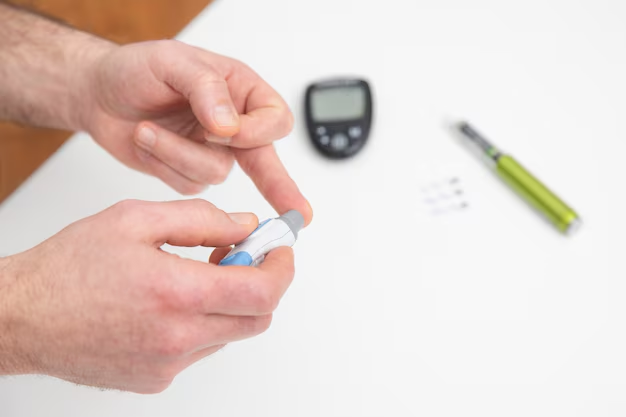Your Guide to Does Diabetes Cause Erectile Dysfunction
What You Get:
Free Guide
Free, helpful information about Diabetes FAQ and related Does Diabetes Cause Erectile Dysfunction topics.
Helpful Information
Get clear and easy-to-understand details about Does Diabetes Cause Erectile Dysfunction topics and resources.
Personalized Offers
Answer a few optional questions to receive offers or information related to Diabetes FAQ. The survey is optional and not required to access your free guide.
Does Diabetes Lead to Erectile Dysfunction? Understand the Connection
Living with diabetes poses numerous challenges, and managing its complications is crucial for maintaining a healthy lifestyle. One concern often associated with diabetes is erectile dysfunction (ED), a condition that can affect self-esteem and intimate relationships. But does diabetes cause erectile dysfunction? Here's an insightful look into this connection and steps you can take to address related challenges.
Understanding the Link Between Diabetes and Erectile Dysfunction
Erectile dysfunction, the inability to achieve or maintain an erection sufficient for sexual intercourse, is a common issue for many men. While ED can result from various factors, diabetes is a significant risk due to its impact on blood flow and nerve function.
Diabetes affects the body's ability to produce or use insulin effectively, leading to elevated blood sugar levels. Over time, high blood sugar can damage blood vessels and nerves. This damage can interfere with the blood flow necessary for an erection and can also affect the nerves that control an erection. Studies suggest that men with diabetes are more than three times as likely to develop ED than those without the condition.
Key factors include:
- Nerve damage (Neuropathy): Diabetes can cause diabetic neuropathy, affecting the nerves that trigger an erection.
- Impaired blood flow: High blood sugar can damage the blood vessels, reducing blood flow to the penis.
- Hormonal changes: Diabetes can lead to hormonal imbalances, contributing to ED.
Managing Diabetes to Mitigate Erectile Dysfunction
While the link between diabetes and erectile dysfunction can be concerning, proactive management of diabetes can reduce the risk and impact of ED. Here are some steps to consider:
- Blood sugar control: Maintaining healthy blood sugar levels is crucial. Regular monitoring and adhering to your treatment plan can help.
- Healthy lifestyle: Eating a balanced diet, exercising regularly, and avoiding smoking and excessive alcohol can improve overall health and blood flow.
- Medication and therapy: ED treatments, including medications like phosphodiesterase inhibitors, vacuum erection devices, or therapy, can be effective. Discuss with your healthcare provider for the best approach.
Exploring Financial and Educational Support
Managing diabetes and its related conditions can be costly, but several resources are available to assist with the financial burden:
- Government Aid Programs: Look into Medicaid, Medicare, or other state-specific assistance programs that may help cover medical expenses.
- Financial Assistance: Organizations like the American Diabetes Association offer resources for securing financial assistance for diabetes management.
- Debt Relief Options: If medical debt becomes overwhelming, consider professional advice on debt consolidation or negotiation.
- Educational Grants: Explore opportunities for educational scholarships or grants, particularly if diabetes impacts your educational pursuits.
📝 Helpful Resources
- 💵 Government Aid Programs
- Medicaid, Medicare, or local health departments
- 🏥 Financial Assistance
- Organizations like the American Diabetes Association
- 📉 Debt Relief Options
- Credit counseling or debt negotiation services
- 🎓 Educational Grants
- Scholarships and grants for managing health-related educational challenges
While diabetes is a significant factor in erectile dysfunction, proper management and lifestyle adjustments can help mitigate risks. Don’t hesitate to explore financial and educational resources that could support living a healthier life with diabetes. Taking these steps can empower you to maintain your well-being and navigate the complexities of managing both diabetes and erectile dysfunction.
What You Get:
Free Diabetes FAQ Guide
Free, helpful information about Does Diabetes Cause Erectile Dysfunction and related resources.

Helpful Information
Get clear, easy-to-understand details about Does Diabetes Cause Erectile Dysfunction topics.

Optional Personalized Offers
Answer a few optional questions to see offers or information related to Diabetes FAQ. Participation is not required to get your free guide.


